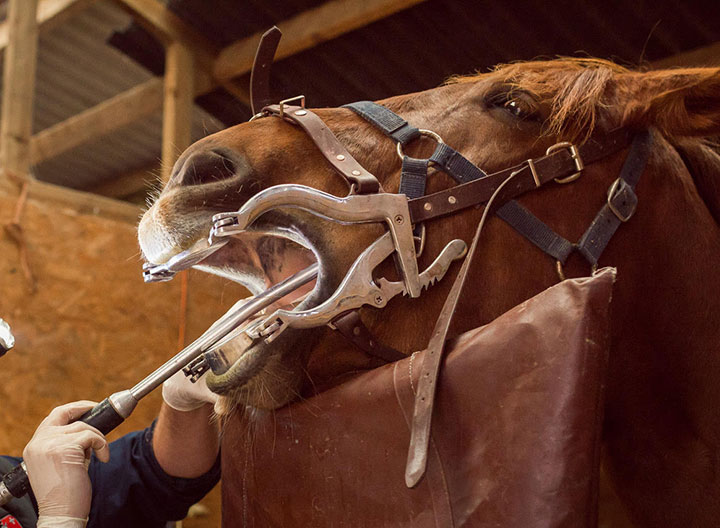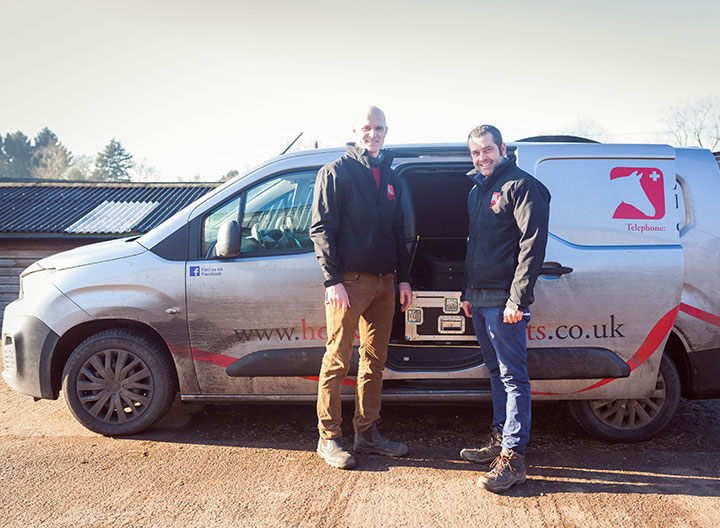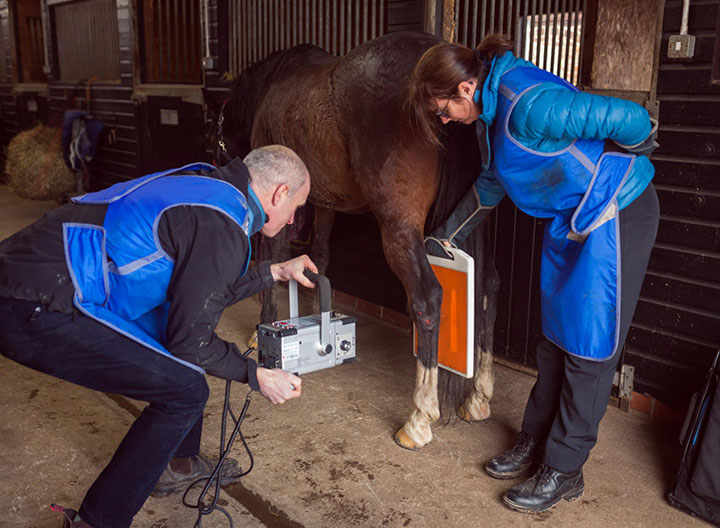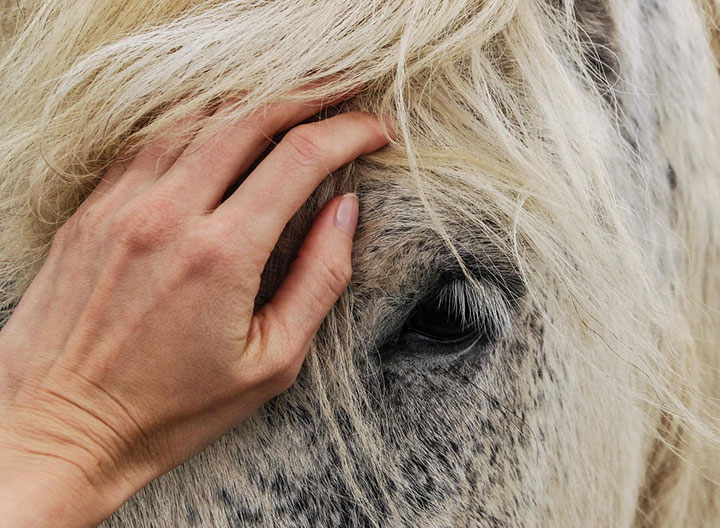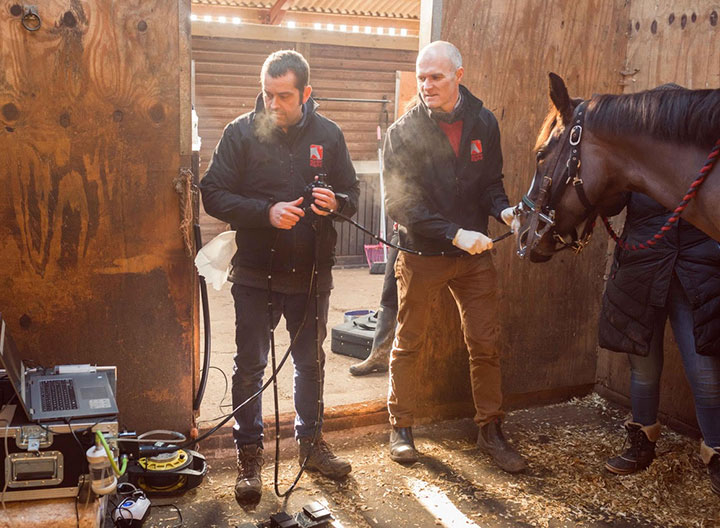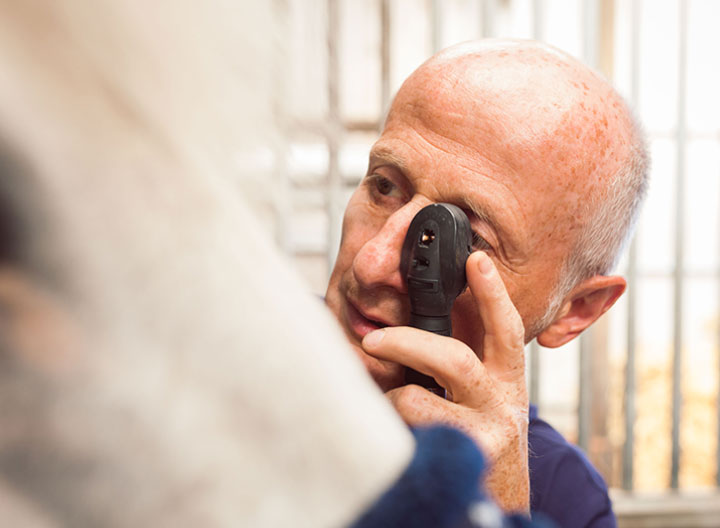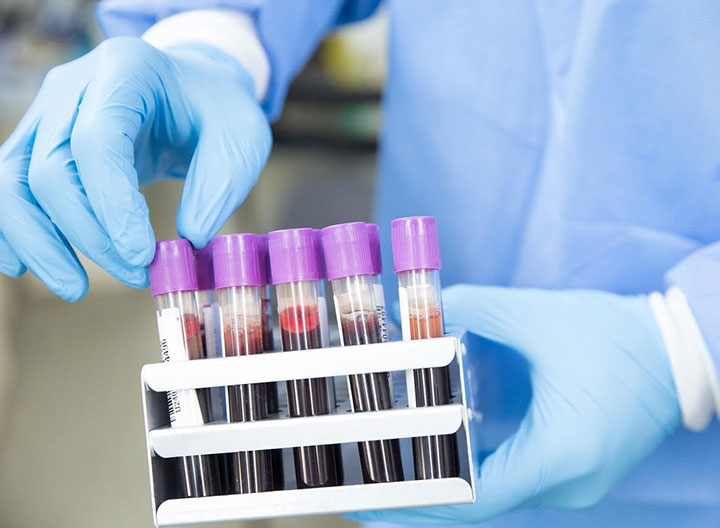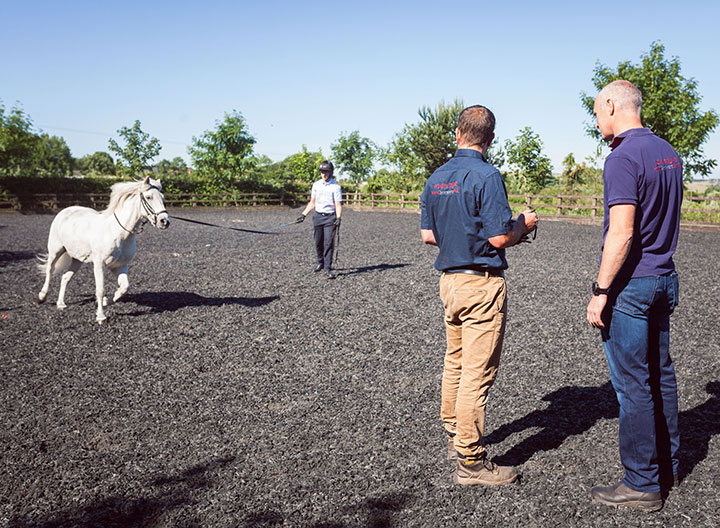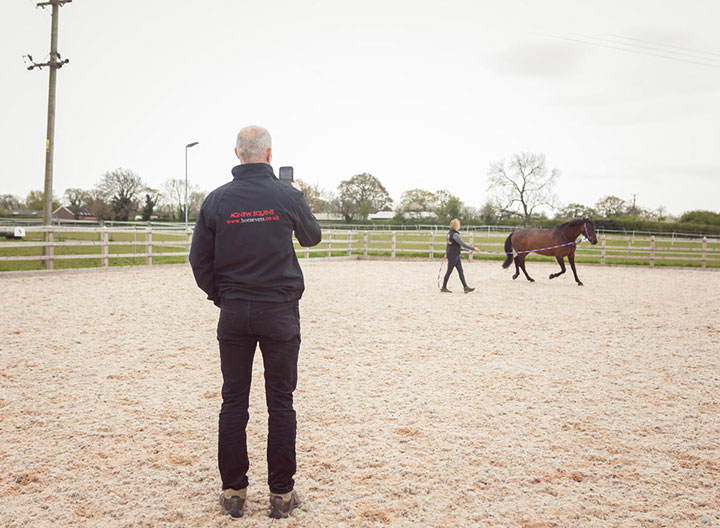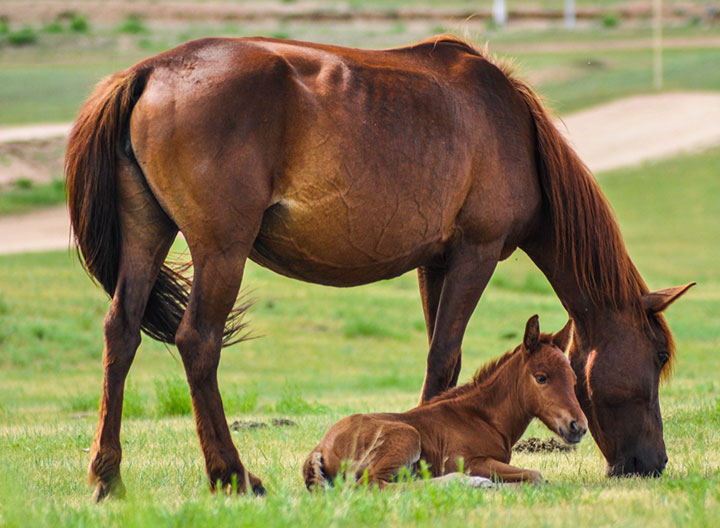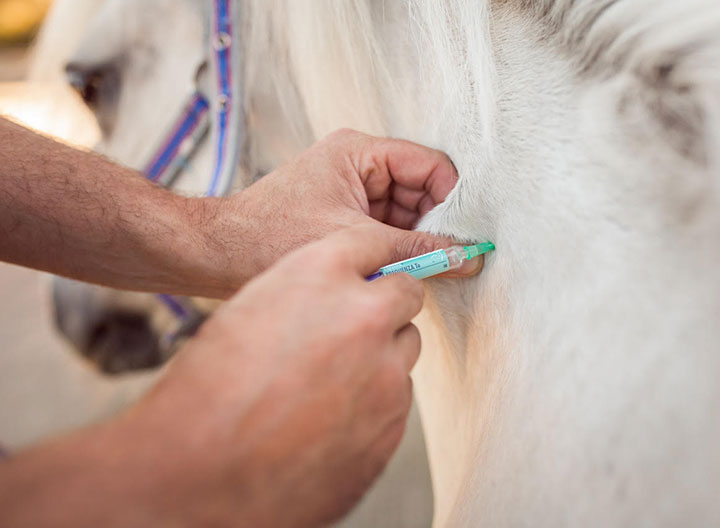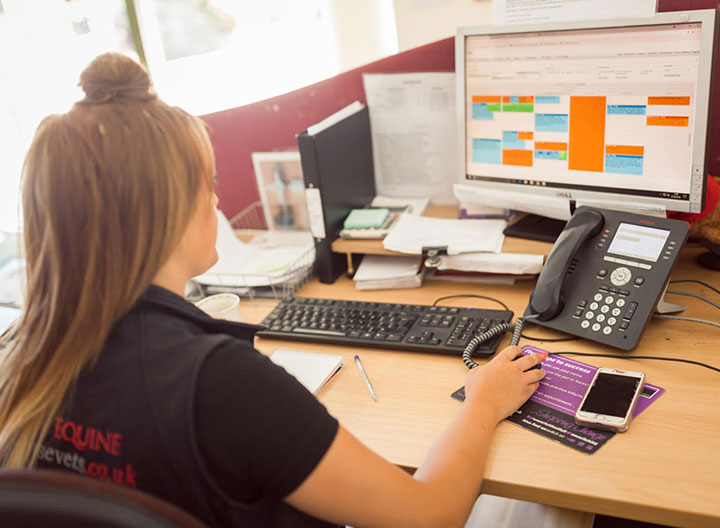Pre-Purchase Examinations (Vettings)
To book a vetting with us, please fill out the online booking form.
There is a lot to considering when purchasing a new horse or pony, and it is an exciting time but can include some stress as well! So, in order to avoid any unwelcome surprises after the purchase has been made, we recommend you have a pre-purchase examination - more commonly known as a ‘vetting’. These exams are a thorough clinical examination performed on behalf of a potential purchaser to identify and assess any problems that could affect a horse’s suitability for its intended use.
Pre-purchase examinations are frequently required by insurance companies in order to take out an insurance policy, so contact your chosen insurance provider in advance to ensure you meet the necessary requirements - this information will also help to guide you in selecting what level of vetting you require.
Robin, Arnie & Stuart carry out the majority of our vettings as we feel experience is key to delivering the best outcome for you and the horse. There are two pre-purchase examination options: a two-stage or a five-stage vetting. Two-stage examinations are considered a limited pre-purchase examination as the horse is only examined at rest. We would always recommend a five-stage vetting where possible as it will also review the horse after it has been exercised, but exceptions to this may include a foal or unbroken horse where ridden exercise isn’t possible.
Stages of Vettings:
Stage 1: Preliminary examination – This is a thorough external examination of the animal at rest using visual observation, palpation and manipulation to detect clinically apparent signs of injury, disease or physical abnormality. It includes an examination of the incisor teeth, a thorough examination of the horse’s eyes in a darkened area and auscultation of the horse’s heart and lungs at rest.
Stage 2: Walk and trot, in hand – The animal is walked and then trotted in hand to detect abnormalities of gait and action. Ideally this is carried out on firm, level ground. The horse is turned sharply each way and is backed for a few paces. Flexion tests of all four limbs and trotting in a circle on a firm surface may be carried out if the examining veterinary surgeon considers it safe and appropriate to do so.
Stage 3: Exercise phase – The horse is usually ridden and given sufficient exercise to: 1. Allow assessment of the horse when it has an increased breathing effort and an increased heart rate. 2. Allow assessment of the horse’s gait at walk, trot, canter and, if appropriate, gallop. 3. Allow assessment of the horse for the purpose of stage five. If ridden exercise is not possible for any reason then this stage may be conducted by exercising the horse on a lunge, but this fact should be made clear to the purchaser and on the certificate.
Stage 4: Period of rest and re-examination – The horse is allowed to stand quietly for a period. During this time the respiratory and cardiovascular systems may be monitored as they return to their resting levels.
Stage 5: Second trot up – The animal is trotted in hand again to look for any signs of strains or injuries made evident by the exercise and rest stages. Flexion tests and trotting in a circle Flexion tests and trotting in a circle on a firm surface are not mandatory parts of the standard procedure, but they can sometimes provide useful additional information about a horse. There may be circumstances when the examining veterinary surgeon concludes that it is unsafe or inappropriate to perform such tests.
If requested, at the end of any vetting a blood sample can be taken from the horse. This sample is used should there be any concerns in the future that the horse or pony may have been given medication that was not declared at the time of the vetting. Routine x-rays are not part of a standard 5-stage vetting but may be recommended if the vet is suspicious of a problem during the examination. Valuable horses or those going on to high level competition are often radiographed at the purchasers or insurance companies request.
Should you have any further questions whatsoever regarding the vettings process - please contact us on 01782 510502 or office@horsevets.co.uk.


